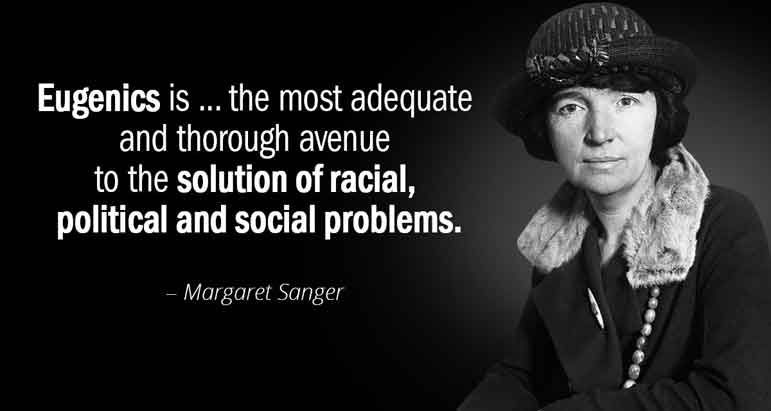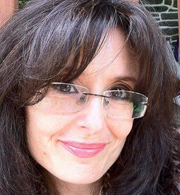
To be fair, Sanger was not alone in her devotion to the principles of eugenics. Many otherwise respected and intelligent historical figures embraced the idea that we should limit both the number and nature of babies being born, so as to improve the demographics of the nation. You might be surprised to learn the names of some of the supporters: Oliver Wendell Holmes, Theodore Roosevelt, Helen Keller, Clarence Darrow, W.E.B DuBois and Winston Churchill. They obviously did not think of themselves as white supremacists and bigots (particularly not DuBois,) and their attraction to the idea that we need to get rid of "lower forms" of humanity was caused in part by the harmful impact that industrialization and increased immigration had on the United States in the late 19th and early 20th centuries.
But they were people who decided that they could play G od, and they were all progressives.
Fast forward a century, to the pandemic.
Today, we are in the midst of a crisis that sees widespread fatalities, and limited resources to address them. Now that at least one vaccine has been approved for widespread distribution, it is only natural that our attention turns toward whom will get it first, given the fact that not everyone who needs treatment can access it. And here is where the principle that undergirds eugenics comes into play.
It has always been common to hear medical professionals say that we need to make difficult ethical choices when seeking to do triage in emergencies. Doctors are often forced to decide which of two equally deserving patients will get life-saving attention, and which will be sacrificed for the greater good. This is nothing new. There is also nothing new in the suggestion that the younger you are, the more worthy you are of treatment. The thought is that the elderly have lived their lives, and it is only fair to provide those on the lower end of the chronological scale opportunities that their elders have already been given.
There is also the idea that those who are disabled should be sacrificed in the interest of the able-bodied, because "quality of life" is more important than "life" itself. Of course, just who should determine what that "quality" looks like is up for debate, as is the definition of "quality."
As someone who has opposed abortion ever since she could understand what that was, and what it meant, I am no stranger to the arguments about quality of life. Many of those who believe that pregnant mothers who receive a diagnosis of Downs, or encephalitis, or spina bifida, or Tay Sachs, or any other debilitating condition for their unborn children should have the right to terminate their pregnancies as an anticipatory form of euthanasia.
Others believe that euthanasia on the sick, and the elderly, is compassionate. They have either convinced themselves of their sincerity, or they are blinded by a desire to reject the core principle of eugenics. And that is what Planned Parenthood does, on a regular basis.
But as horrific as eugenics truly is, it can get even worse. We saw what that looks like this week, when a professor at the University of Pennsylvania opined that since most front line caregivers are people of color, and most elderly people in nursing homes and elsewhere are white, the caregivers should be given preference when distributing the vaccines.
Racism, meet Miss Sanger.
This layering of a race narrative over an already dangerous supposition that some lives are more important than others (youth greater than age, ability better than disability) has brought us to a place where those "death panels" envisioned by Sarah Palin don't seem so silly anymore. But now we do it with an "anti-racism" twist.
In an interview with the New York Times, ethics and health policy expert Harold Schmidt stated that, "'Older populations are whiter. Society is structured in a way that enables them to live longer. Instead of giving additional health benefits to those who already had more of them, we can start to level the playing field a bit."
There are so many things that are wrong with this comment, it's hard to know where to start, but I'll try. First, the idea that front line workers are predominantly people of color has a tinge of racism to it. Next, the idea that the elderly are overwhelmingly white (as if there was something wrong with the fact that they didn't die off in a timely manner) is misguided.
Even if the statistics do bear out the fact that there are more white people over a certain age than people of other races, this does not factor in economics, health and other metrics which would have some bearing on the statistic. Finally, the idea that the race and age of a sick person should be used to either favor, or harm them, is repellent. I wonder if the good ethicist would have said the same thing if the races and ages were reversed.
Eugenics is a Pandora's Box that was opened by Sanger and her crew, and fully exploited by a gentleman in Germany a few decades later. Harold Schmidt and those who agree with him are in that same class. We need to nail that box shut, once and for all.
(COMMENT, BELOW)
Christine M. Flowers is a lawyer and columnist.


 Contact The Editor
Contact The Editor
 Articles By This Author
Articles By This Author